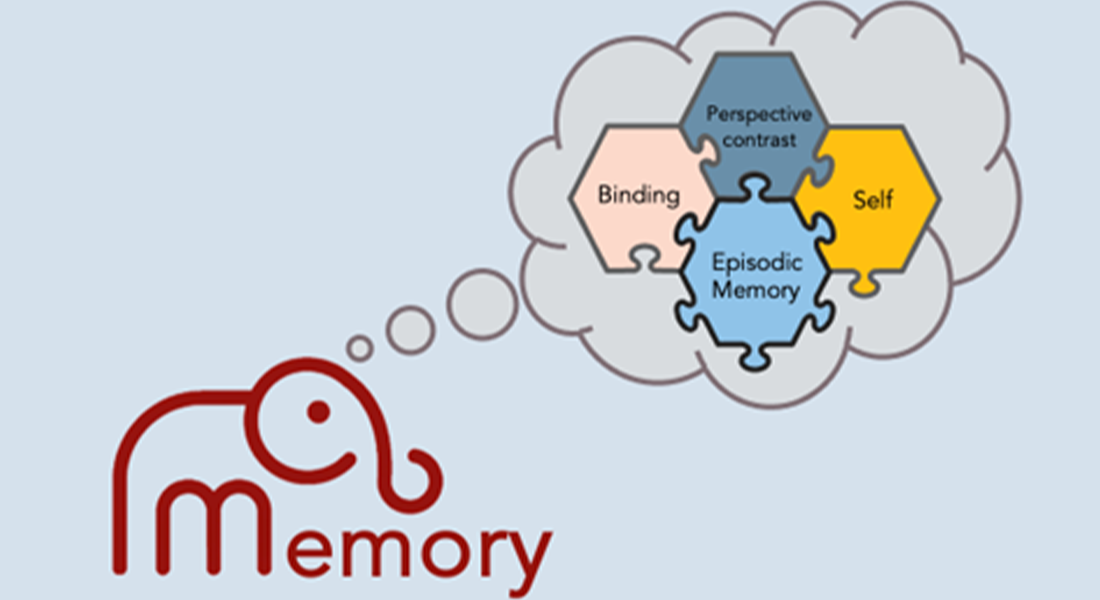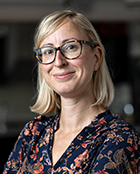The role of infants’ emerging self-perspective in memory development (“Memory” project)

What’s your first memory? How old were you? Who was with you? Did you understand already that what you yourself saw was not necessarily what other people saw? In fact, was there even a “self” to be yours, that would have known things that “others” didn’t?
Searching for answers to these questions, this project will investigate what enables 1-3 years old children to remember details from their lives, such as where they know something from. We will test a large cohort of infants at 12 months, 18 months, and finally at 3 years. Testing the same infants through their development allows capturing relationships between cognitive skills and stages of development while considering individual variations. Infants, becoming children, will take part in various tasks measuring how they understand other people's perspective, how they remember things they attended to, and how caregiver input and caregiver-child interactions may influence this development.
A central hypothesis to our project is that early social cognition, specifically binding people’s perspectives and mental states as unique and specific to them, is the precursor of (and pressure behind) children’s beginning to remember the sources of their knowledge, and unique, specific events from their lives which is commonly referred to as episodic memory.
The importance of understanding own vs. others’ perspectives
Representing oneself as independent from others can help contrasting one’s perspective on some event from that of others. At the same time, appreciating that one’s perspective contrasts with that of others can help recognizing oneself as a unique, separate being. One might become better able to track one’s own history of knowledge or actions and isolate it from the history of someone else. But to do so, one needs to bind specific knowledge about the world to the correct people they learned it from or experienced it with. Knowing, for instance, that those who saw something know something that those who saw nothing do not. For example: if my sister gave me a cake when my dad was out, my sister knows that I have a cake, but dad does not (so, I can ask him for more).
During the first two years, infants are remarkable in how they rely on other people’s perspective. Yet, this efficiency often comes with generalizing this perspective to anyone, including themselves. In some of our experiments, we will probe whether infants’ processing of scenes, and their memory of events, are guided by others’ perspectives. Another hypothesis we will probe is whether they spontaneously generalize one agents’ mental state to another one, even though they don’t know anything about that new agent! Taking the above example, they would think that dad knows where’s the cookie!
Meanwhile, as our little participants will become children, they will grow a sense of their own “self”. Our hypothesis is that such representation will relate, perhaps determine infants’ ability to contrast their perspective with others and to bind knowledge to people, as evidenced in the above screen-based tasks. These representations, containing who did what and where/when, often need to be stored for longer periods of time – in children’s memory. Together, on the long run, this will allow them to form unique memories with individual people, what we call episodic memory – and to remember who they know something from, what we call ‘source memory’.
To look at whether early social cognition predicts later memory development, at the 12 and 18 month old visits, which will run from summer 2024, infants will participate in screen-based tasks probing their understanding of the social world (using looking-time and eye-tracking as main methods). These will allow us to see if for example, young infants consider people’s beliefs and preferences as unique to them, or they think it may apply to others too. For example: If they learn about one person that she prefers a certain object, would they expect another, new person to prefer the same – or do they learn each individual person’s unique preference? And would they choose that themselves, if given a choice? Infants will also participate in interactions with their caregiver in play-like sessions, such as reading a book together or jointly attending to toys and explore them. This will allow us to see how they begin to notice that others are paying attention to the same thing as them, and that the same thing may look differently to others than for themselves. They will also participate in some basic memory tasks and free-play sessions with their caregivers.
Then, when they turn 18 months, they will repeat some of the same screen-based tasks to see if they now process things differently. We will also do the mirror-self-recognition task with them, to see if they show evidence of a self-concept. Additionally, we may record their brain activity while they take part in these tasks. This would be particularly exciting, as there are measures indicating increased processing, for example due to multiple conflicting possibilities – which would allow us to see if babies’ perception of different perspectives as potentially conflicting each other would be related to understanding people’s perspectives as unique to the person.
On the long run, we are excited to use these early measures of social understanding and relate them to probing infants’ developing episodic- and source memory when they are around 3 years of age, to see if the emergence of forming these special types of memories that are unique and individual occurrences, are related to their earlier understanding of people and their perspective as unique and individual. In the next years, we will report how this worked, and how this interplay of perspective contrast/binding with self-representation predicts older children’s memory skills.
|
Dora Kampis
Assistant Professor - Tenure Track |
 |
|
Postdoc
nrg@psy.ku.dk
|
 |
About the project
The project began in the Summer of 2024 and runs until the Winter of 2026.
